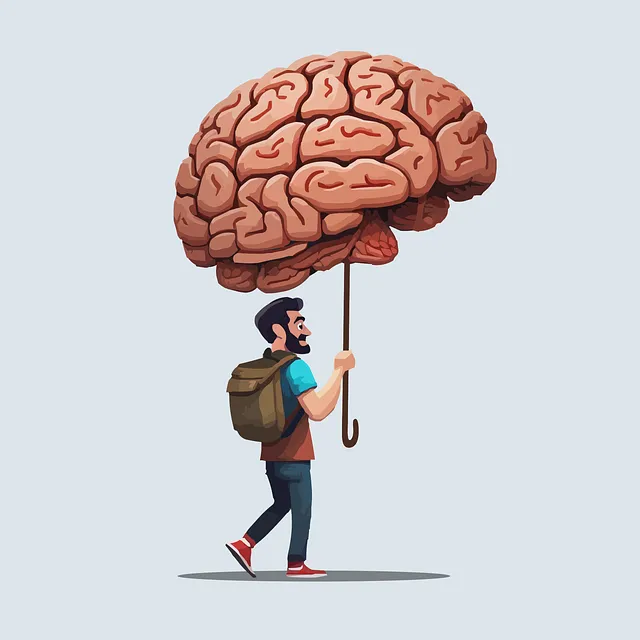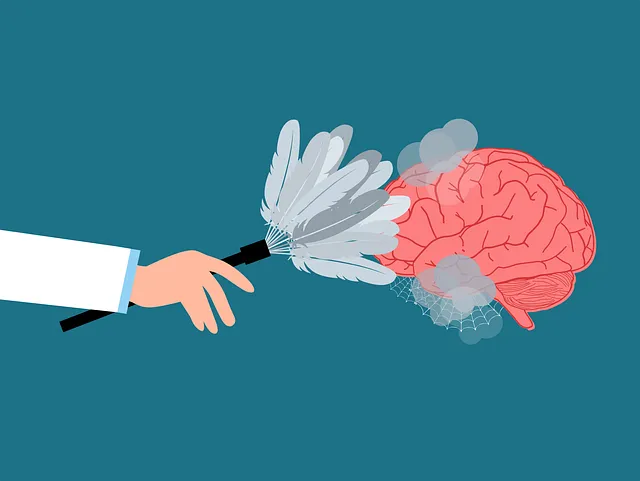The Boulder Kaiser Permanente mental health facility offers specialized group therapy programs tailored to diverse populations, integrating evidence-based practices and Crisis Intervention Guidance. These groups foster community, collaboration, and connection, empowering individuals on their mental wellness journeys through open dialogue, interactive activities, and stress management strategies. An inclusive environment, active listening facilitators, and Mental Health Education Programs enhance emotional regulation, reduce stigma, and promote self-care routines. Success is evaluated using multi-faceted methods including pre/post assessments and qualitative feedback, ensuring programs cater to individual needs for impactful mental wellness improvements.
In the heart of Boulder, Colorado, the Kaiser Permanente Mental Health Facility stands as a beacon of hope and healing. This article explores the innovative group facilitation techniques employed by this leading healthcare provider, highlighting their role in fostering community support and enhancing mental wellness. By delving into the unique approach of the Boulder Kaiser Permanente facility, we uncover essential strategies for creating safe, inclusive environments that encourage open dialogue, ultimately measuring success through impactful program evaluations.
- Understanding the Boulder Kaiser Permanente Mental Health Facility and its Role in Group Facilitation
- The Importance of Group Therapy and Community Support
- Essential Techniques for Effective Mental Wellness Group Facilitation
- Creating a Safe and Inclusive Environment for Open Dialogue
- Measuring Success: Evaluating the Impact of Group Facilitation Programs
Understanding the Boulder Kaiser Permanente Mental Health Facility and its Role in Group Facilitation

The Boulder Kaiser Permanente mental health facility plays a pivotal role in community mental wellness support. As a leading healthcare provider, it offers specialized services tailored to diverse populations, emphasizing group facilitation as a powerful therapeutic tool. This facility is renowned for its comprehensive approach, integrating various evidence-based practices to address complex mental health needs. The environment fosters collaboration and connection, making it an ideal setting for group therapy sessions.
Group facilitation techniques are meticulously designed to create safe spaces where individuals can share experiences, build resilience, and learn from one another. In line with the Crisis Intervention Guidance and Risk Assessment for Mental Health Professionals, the facility ensures that each group session is guided by trained facilitators who employ strategies for stress management. This supportive environment encourages participants to navigate their mental health journeys collectively, fostering a sense of community and enhancing overall well-being.
The Importance of Group Therapy and Community Support

Group therapy offers a unique and powerful environment for individuals seeking mental wellness support. At the Boulder Kaiser Permanente mental health facility, we recognize that sharing experiences and connecting with peers can be incredibly beneficial in one’s journey towards healing. This collaborative approach to mental health care fosters a sense of community, where individuals feel understood and supported. In a group setting, members learn from one another, gain new perspectives, and develop coping strategies tailored to their specific challenges.
The sense of belonging created within these groups is a cornerstone of effective therapy. Our Mental Health Education Programs Design incorporates the Mind Over Matter Principles, encouraging participants to tap into their inner resilience and strength. Through group facilitation techniques, we aim to create safe spaces where individuals can openly discuss their experiences, build meaningful connections, and develop practical tools for managing mental health concerns. Community Outreach Program Implementation further strengthens this support network by extending these therapeutic benefits to a broader audience.
Essential Techniques for Effective Mental Wellness Group Facilitation

Effective mental wellness group facilitation involves a blend of techniques designed to create a safe and supportive space for participants at Boulder Kaiser Permanente mental health facility. One key technique is active listening, where facilitators pay close attention to each individual’s experiences and perspectives, fostering open dialogue and mutual understanding. This not only helps in building trust but also encourages members to share their stories and support one another.
Additionally, incorporating interactive activities and exercises tailored for group settings can significantly enhance mental wellness. These activities aim to promote emotional regulation by teaching participants stress reduction methods, coping strategies, and mindfulness techniques. By engaging in these practices collectively, the group dynamic strengthens, creating a network of peers who can offer encouragement and accountability as they navigate their mental health journeys together.
Creating a Safe and Inclusive Environment for Open Dialogue

Creating a safe and inclusive environment is paramount when facilitating mental wellness groups at Boulder Kaiser Permanente’s mental health facility. It encourages participants to openly share their experiences, fostering a sense of belonging. Techniques like active listening, empathy, and non-judgmental attitudes from facilitators play a crucial role in reducing the stigma often associated with mental illness. By ensuring every voice is heard without fear of judgment or ridicule, these groups promote self-care routine development for better mental health.
Participants learn to manage their moods more effectively when they feel secure within the group dynamic. This security allows them to explore coping mechanisms, share strategies that work best for them, and gain insights from others’ experiences. Such open dialogue not only enhances individual mental wellness but also contributes to broader mental illness stigma reduction efforts within the community, creating a supportive environment where everyone feels valued and understood.
Measuring Success: Evaluating the Impact of Group Facilitation Programs

Evaluating the success of mental wellness group facilitation programs is a vital step in understanding their impact and effectiveness. At Boulder Kaiser Permanente mental health facility, we employ a multi-faceted approach to measure success beyond simple attendance or participation. This includes tracking improvements in key areas such as stress management, positive thinking, and overall mental well-being.
Our method involves pre- and post-program assessments, where participants are asked to complete standardized questionnaires designed to gauge their psychological state. We also gather qualitative feedback through surveys and interviews, allowing for a deeper understanding of individual experiences and perceived benefits. This holistic evaluation ensures that the programs truly address the needs of the group and contribute positively to their mental wellness journey, aligning with our goal of producing impactful results through our Mental Wellness Podcast Series Production.
The Boulder Kaiser Permanente mental health facility plays a pivotal role in fostering community support through group facilitation techniques. By creating safe and inclusive environments, these programs empower individuals to share openly and support one another. Essential techniques highlighted in this article, combined with robust evaluation methods, ensure that Boulder Kaiser Permanente’s group facilitation programs make a tangible impact on mental wellness, offering a testament to the power of community-driven care.






